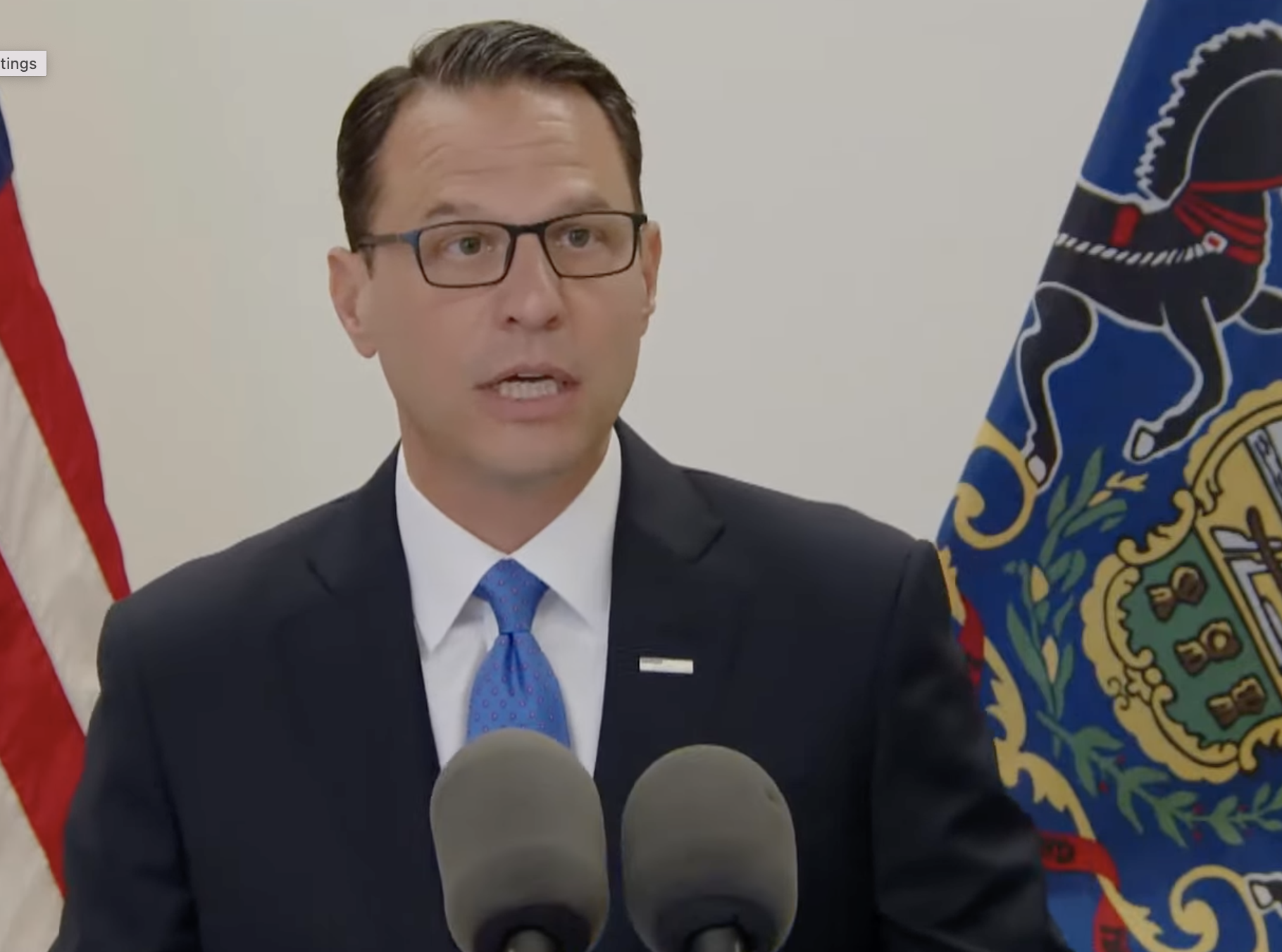Attorney General Josh Shapiro is celebrating a plea deal reached with Energy Transfer (ET) related to the Mariner East and Revolution pipeline projects announced Friday, calling it a “major victory” for his office.
But critics say there is far less to Shapiro’s agreement than meets the eye.
The case began last October when Shapiro came to the shores of Marsh Creek Lake in Chester County 10 months ago for a high-profile press conference. He announced he had filed 48 criminal charges against ET over issues of drilling fluid leakage and other violations, all of which had already been adjudicated by the state Department of Environmental Protection.
Two weeks later, Shapiro formally announced his bid for governor.
On Friday, Shapiro announced the conclusion to that case: ET agreed to plead no contest to 23 of the charges. They also agreed to pay for reviews of residents’ water, independent testing, and repairs and remediation where needed.
“Energy transfer will also be required to pay $10 million to make the water sources most damaged by this construction, cleaner and safer,” Shapiro said.
“The $10 million that will be provided is more than six times the amount allotted for under our state law. We delivered a major victory, and a criminal conviction and returned power to the people.”
But in a statement, ET took issue with Shapiro’s characterizations.
“We are disappointed in the Attorney General’s characterization today of the agreement that was filed in open court. As the Attorney General is aware, and as stated in open court, we pled ‘Nolo Contendere’ with no admission to any facts,” the statement reads.
“Additionally, contrary to the Attorney General’s characterization, and as acknowledged by the Court on the record, the $10 million fund which Energy Transfer agreed to establish is not a fine or a penalty of any kind but the product of a voluntary collaboration with the Commonwealth. The same is true for the well-water grievance procedure, which is a voluntary program agreed to by Energy Transfer.
“The fact remains that the total fines levied were limited to $57,500. While we understand Mr. Shapiro is running for office, it remains disappointing that he would mischaracterize the facts of this voluntary agreement to his political advantage rather than acknowledge the good faith efforts of Energy Transfer to resolve this dispute. Having said that, we are pleased to bring these matters to a close.”
The 350-mile Mariner East pipeline is a key part of Pennsylvania’s energy infrastructure bringing natural gas liquids, such as propane, ethane, and butane, from the Marcellus and Utica Shale region in western Pennsylvania to the Marcus Hook Industrial Complex in Delaware County. The pipeline has been up and running for months, sending products to Western Europe where Russia’s invasion of Ukraine has created supply disruptions.
“Hopefully, this brings closure to the issue because it’s time to put the past to rest,” said Kurt Knaus with the Pennsylvania Energy Infrastructure Alliance (PEIA). “Construction of these legally permitted pipelines is finished, and the Mariner East network is operating safely, delivering the fuels we need to power our economy and support our allies.
“The combined pressures of domestic inflation and global unrest underscore just how important these critical energy infrastructure projects are to our own state of affairs and the safety of our foreign partners.”
Shapiro’s fellow Democrats echoed his “major victory” message.
“The plea agreement entered into today by Energy Transfer is a huge win for the people of Delaware County. I want to thank Attorney General Shapiro for leading this joint investigation and his tireless efforts to bring this powerful corporation to justice for the damage it did to our communities, our residents, and our environment,” said Delaware County District Attorney Jack Stollsteimer.
Shapiro’s critics, however, see partisan politics at work.
“Today’s announcement reeks of political opportunism and should put all Pennsylvania businesses on notice about the type of governor Mr. Shapiro would be,” a former Energy Department official told DVJournal on background. “That he would go to these great lengths to showcase a settlement like this in the midst of a global energy crisis speaks volumes about Mr. Shapiro’s priorities. Priorities that clearly don’t include Pennsylvania’s energy and manufacturing industries or their workers.”
And, political observers say, voters’ attitudes about energy projects have likely changed since prices for gas, home heating oil, and other petroleum products have skyrocketed. Targeting a pipeline project amid supply chain problems and rising inflation may not be a winning message.
Energy policy is already at the center of the campaign for governor. Republican state Sen. Doug Mastriano has pledged to “expand oil and natural gas exploration, and eliminate state regulations, taxes and fees that are harming our energy production.”
Shapiro’s stance, however, has been less clear. For example, he is unwilling to commit to keeping Pennsylvania in the Regional Greenhouse Gas Initiative (Mastriano says he would pull out “one day one,”) and he has talked up regulations on fracking while avoiding a commitment to a fracking ban.
Now, Shapiro says, it’s time to engage the community so people impacted by the pipeline construction can take advantage of the deal. He urged residents interested in having their water tested to reach out to the Pennsylvania Office of Attorney General “as soon as possible,” at watertesting@attorneygeneral.gov.
He also urged community groups like watershed associations and Conservancy groups to apply for funding for projects in the 17 counties impacted by the pipeline.
“This way we can ensure projects are impactful, funding is used effectively, and we can limit redundancy and ensure projects which wouldn’t have been possible without this compensation are completed,” Shapiro said.

